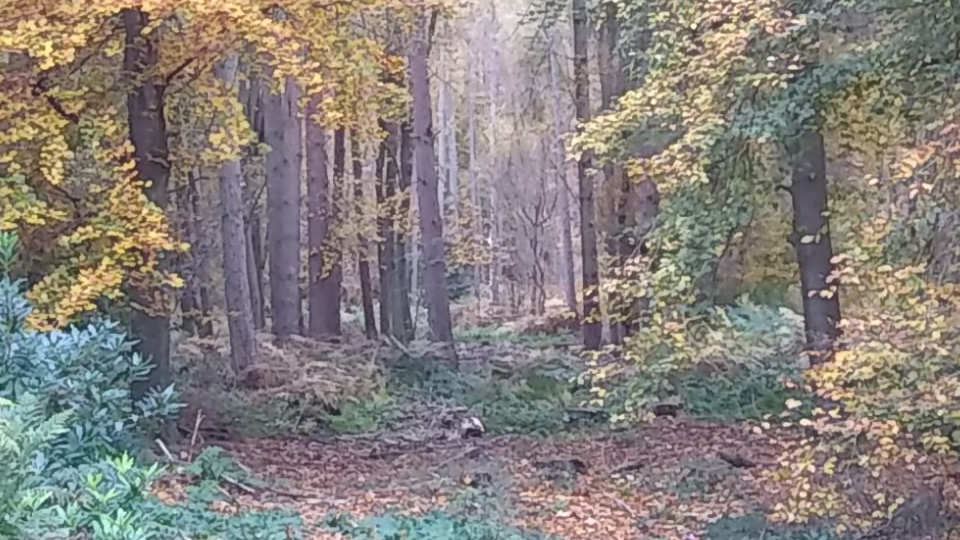Polite Delusions by Isabel Galleymore
My hands are cold and I’m wearing a scarf, but there’s a slight warmth in the air. Walking through the wood, I think to myself that this warmth could be a sign of spring. When I look around, however, I remember it’s not the beginning of the year, but the end. The sun is shining and Midas has graffitied the woodland with his golden touch. Too poetic? Probably. Half a mile on, I think about how to describe the dew drops covering the ferns: the words ‘glistening’ and ‘diadem’ come to mind and I cringe. And then there are the spider webs strewn across the grass in intricate designs. How can a poem seek to capture those?
COP26 has come and gone while I’ve been walking in the woods and asking myself these questions. Writing that sentence makes me feel an uneasy mix of guilt and shame. How could I be so indulgent? Should I have travelled to Glasgow and participated? When a writer emails me to say that she used one of my poems for a writing workshop held in honour of COP26, I feel slightly better. But why? Can poetry make a difference? Sometimes I feel like allowing Tesco to respond in my stead: ‘every little helps.’ I’m rescued by Suzannah Evans, a previous Gladstone Resident, who writes far more articulately on this question of ecopoetry’s utility. Like her, I’m of the opinion that even if we’re not reversing climate change with ecopoems, they might at least help us to recognise something of this fraught moment on earth.
But, of course, that leads to another question: If a poem helps us to recognise this fraught moment, must all ecopoems be fraught in their subject matter and voice? I’m reminded of Dave Coates’ recent review of Ultimatum Orangutan by ecopoet, Khairani Barokka; in particular, Coates’ praise for what I understand to be Barokka’s more polemical angle: it is ‘a powerful, challenging, enriching book’, he states, ‘one that has little time for the polite delusions that often comprise poetic writing on nature in these islands.’
There’s no doubt that Barokka’s collection is a must-read and I recommend it strongly, but what exactly does he mean by ‘polite delusions’? I wonder if the term might include my walking in the woods and weighing up the right words for its golden beauty. Suddenly I feel as though I’m not a poet, but a copywriter focused on selling Beautiful Nature™ which, it turns out, is a scam.
But no, I am not deluded. This is no scam. Beautiful Nature is out there. Or at least it is in certain parts. Or at least it is for the moment. Beauty, prettiness and wonder might not be fashionable aesthetics – and it’s true that they seem to pale under the weight of issues such as climate change – but so often they play significant roles in our relationships with environments. Rather than cast them out of ecopoetic practice, could it be more productive to look deeply into them?
Under an oak tree, I make sustained eye-contact with a squirrel and only just stop myself giving it a little wave. What is it about charismatic minifauna that makes me seek this connection? What problems does this raise for our interaction with other species whose bodies may not even possess eyes one can meet?
A tiny spider crawls on my hand and I think back to the webs strewn across the grass, remembering my question, ‘How can a poem seek to capture those?’ What is it in me that wants to ‘capture’ them in the first place? I think of the connection between capture and imprisonment, shaking off the spider and continuing my walk. Soon, I’ll take off my scarf. After all, there’s a slight warmth in the air.
By Isabel Galleymore, Writer in Residence writing in November 2021
